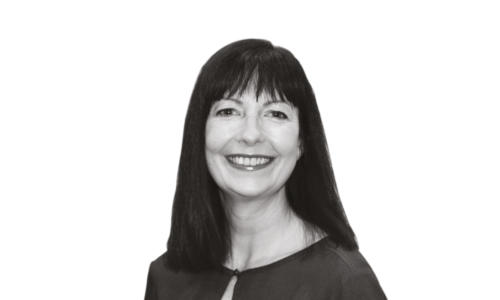Sharing knowledge to make banks safer
- Helen McKay
Making banks safer for consumers, businesses and the wider economy has been a key focus in recent years, say Helen McKay and Mark Saunders of the Institute’s Membership Forum.
The Institute’s Membership Forum meets twice a year to enable a wide range of members, both from the UK and internationally, to help shape the future of the Chartered Banker Institute. Helen McKay, Credit Assurance Manager, LendingCrowd, and Mark Saunders, Director of Business Banking, RBS, have been Chartered Bankers for many years and have seen the industry evolve over that time. They believe that members have been instrumental in both driving and supporting that evolution. Nowhere is that clearer than in fraud risk management.
“The culture has definitely shifted over the past two to three years and there’s now much more openness about fraud and how we as banks manage that,” says Saunders. “Previously, people were reluctant to air their dirty laundry, as it were, or there was a reluctance to report suspicious activity, but now there are clear frameworks to encourage that – and that’s a good thing for banks and their customers.”
Growing transparency and awareness
This more transparent approach fits growing regulatory requirements as well as customer expectations for the industry to take steps to prevent fraud and protect customers. McKay suggests this is even more important as customer interaction with the industry shifts and more automated and digital methods replace – or complement – traditional branch servicing models. “Banks are generally being more open and sharing tips, security alerts and scams that customers need to be aware of. They’re doing a better job of highlighting the risks to customers.”
“We can work hard to make customers aware and educate them, but it really comes down to us, at an individual and organisational level, making sure we’re proactive and ensuring knowledge and judgement is part of our culture.”
Mark Saunders, Director of Business Banking, RBS

It’s something that RBS has taken on board says Saunders, using a range of different tools to build awareness, from leaflets and posters in branch, to messages on ATMs reminding customers not to disclose their PINs, and messages during the online banking process asking customers to think about who they’re sending funds to. “It’s all about understanding where the risks are from a customer perspective and then educating them,” he says. “For our business banking clients, our Business Growth Enablers run incredibly popular awareness sessions on fraud and scams.”
Staying on top of trends
Keeping up with the latest threats is particularly important and something that is made easier by the increasing transparency both within organisations themselves and the wider industry. “It enables us to share risks much more easily,” says Saunders. “For example, we identified potential issues with some applications for the Bounce Back Loan Scheme [BBLS], and we were able to share that information to stop fraudulent applications that followed the same pattern. It also means we can spot trends as they’re developing.”
Internal education is just as crucial, particularly as the industry is held increasingly accountable – not just by regulators but by the general public. “The information that we now require, for example around know your customer [KYC], is at another level because of the regulations,” says McKay. “But that also means a greater focus on identifying any trends that are emerging and measuring the controls in place to deal with those. Frontline staff are also a lot more accountable now, of course, and these additional controls and governance have meant that organisations have had to invest in risk and compliance more than ever. Otherwise, they’ll end up being open to fines and bad publicity and that could really impact their reputation.”
Creating a proactive culture
Reputation and fines aside, Saunders points out that ingraining fraud awareness across the industry is essential to putting customer safety first. “We can work hard to make customers aware and educate them, but it really comes down to us, at an individual and organisational level, making sure we’re proactive and ensuring knowledge and judgement is part of our culture.”
That’s where the role of the Institute is particularly valuable, as both McKay and Saunders point out. “The Institute is a great resource, from the new qualification in bank risk management to magazine articles that highlight new technology in fighting crime or webcasts with experts,” believes McKay. “But it also gives you access to a peer group that you can share ideas and common challenges with. It’s good to know that you’ve got a network out there, and I think that’s particularly important as financial services expands outside mainstream banking. In the smaller organisations, you might not have a robust department that’s there to support you with all the answers, so you can really benefit from a network of people with specialisms that you can just tap into. The Institute helps to bring that all together.”
“You can really benefit from a network of people with specialisms that you can just tap into. The Institute helps to bring that all together.”
Helen McKay, Credit Assurance Manager, LendingCrowd

Pulling together
With an area such as fraud, where the criminals are always a step ahead, those networks are invaluable, as is the Institute’s ability to mobilise resources and create an agenda. The Institute’s campaign to highlight awareness of vulnerable customers, for example, really kick-started the conversation. Saunders says: “Fraud shows up vulnerabilities and the campaign was a great starting point in focusing the industry on what being vulnerable actually means and where the gaps are in addressing that – we now need to turn that awareness into action. It’s where the Institute’s ability to coordinate at a high level, through things like the Membership Forum, can have a huge effect.
“Making banks safer is a bit like climate change – it needs everyone to pull together to make a difference. The Membership Forum and the Institute overall can drive that.”
If you would like to contribute your views as an Institute Advocate, please contact Matthew Ball, Head of Public Affairs, Policy & Communications, Chartered Banker Institute, at [email protected]
